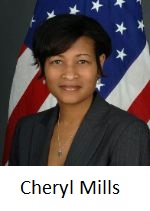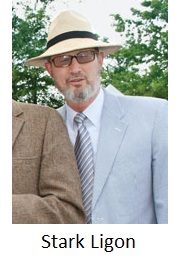I changed my mind. After lamenting two weeks ago that bar complaints against Hillary Clinton’s lawyers probably would be swept under the rug, I decided to file the grievances anyway. I also filed grievances against Mrs. Clinton herself.
 State and federal bar rules uniformly prohibit perjury and destruction of evidence, and there is compelling evidence that Mrs. Clinton is guilty of both. We’ve known for months that Mrs. Clinton’s cronies deleted emails from her secret, home-brew email server. More recently, the chairmen of the Judiciary Committee and Government Oversight Committee of the U.S. House of Representatives referred Mrs. Clinton to the Justice Department for prosecution of perjury based on false testimony that she gave during the Benghazi investigation.
State and federal bar rules uniformly prohibit perjury and destruction of evidence, and there is compelling evidence that Mrs. Clinton is guilty of both. We’ve known for months that Mrs. Clinton’s cronies deleted emails from her secret, home-brew email server. More recently, the chairmen of the Judiciary Committee and Government Oversight Committee of the U.S. House of Representatives referred Mrs. Clinton to the Justice Department for prosecution of perjury based on false testimony that she gave during the Benghazi investigation.
Mrs. Clinton’s friends in the Obama Administration control the Justice Department, which means they can and will block any attempt to prosecute Mrs. Clinton for perjury (or anything else). The same goes for her lawyers. But maybe – just maybe – her tentacles don’t reach into every state and federal bar.
In Mrs. Clinton’s case, I filed grievances with the Arkansas State Bar, the U.S. District Court for the Eastern District of Arkansas, and the U.S. Court of Appeals for the Eighth Circuit. Mrs. Clinton is suspended from the Arkansas State Bar and the U.S. District Court for failure to comply with continuing legal education requirements, but she could reactivate her license at any time by taking the required credit hours. In the Eighth Circuit, however, she is still an active member of the bar, as is one of her attorneys, David “The Deleter” Kendall. I also filed grievances against Mr. Kendall and Mrs. Clinton’s other two lawyers, Cheryl Mills and Heather Samuelson, with the D.C. Bar and the Maryland Bar as well as the U.S. District Court for the District of Columbia. You can read the grievances by clicking the links above, and I’ve elaborated on the grievances below.
At first glance, it doesn’t make much difference whether Mrs. Clinton faces disciplinary charges. You don’t need a law license to be President, and the Clintons have already made a fortune by raking in bribes obscene speaking fees from Goldman Sachs and financiers tied to the Russian Government, so it’s not like she needs her law license to make money. The problem, however, lies in the timing. Congress cannot make the Justice Department respond to its perjury referral against Mrs. Clinton, but any of the three bars could potentially order Mrs. Clinton to respond to my grievance (the same is true for Mr. Kendall, Ms. Mills, and Ms. Samuelson), and that’s where things could get complicated for the Clinton Crime Syndicate.
If Mrs. Clinton or her minions are ordered to respond to the grievances before election day, they’ll have to decide whether to assert their Fifth Amendment rights against self-incrimination, knowing that any such assertion is bound to make headlines. Furthermore, they won’t yet know whether Mrs. Clinton will be the next President, and that means they won’t yet know whether she will be in a position to shut down any federal investigations or prosecutions. If the response deadline is extended until after the election, I suspect Mrs. Clinton will just resign from the bar rather than respond, even though resignation in lieu of discipline is the equivalent of disbarment in most jurisdictions.
 The question is more complicated for her attorneys, particularly David Kendall. Whereas Ms. Mills and Ms. Samuelson are primarily political hacks, Mr. Kendall practices law full time and presumably needs his law license more than his co-conspirators colleagues. Assertion of the Fifth Amendment privilege in a civil case is a two-edged sword: the person asserting the privilege does not have to answer questions, but the judge or jury may use the refusal to answer as evidence of culpability in the civil case. The Supreme Court has labeled disbarment proceedings as “quasi-criminal,” but they are ultimately civil, therefore assertion of the Fifth Amendment privilege can be used as evidence in support of disbarment.
The question is more complicated for her attorneys, particularly David Kendall. Whereas Ms. Mills and Ms. Samuelson are primarily political hacks, Mr. Kendall practices law full time and presumably needs his law license more than his co-conspirators colleagues. Assertion of the Fifth Amendment privilege in a civil case is a two-edged sword: the person asserting the privilege does not have to answer questions, but the judge or jury may use the refusal to answer as evidence of culpability in the civil case. The Supreme Court has labeled disbarment proceedings as “quasi-criminal,” but they are ultimately civil, therefore assertion of the Fifth Amendment privilege can be used as evidence in support of disbarment.
Of course, that assumes that one of the bars or grievance committees will actually initiate an investigation, and that’s a big assumption indeed. The executive director of the Professional Conduct Committee of the Arkansas Supreme Court is, for example, a former Democratic state trial judge from Bradley County, Arkansas named Stark Ligon. I’ve dealt with Mr. Ligon before, and I have very little confidence in him (more on that below). Unfortunately, politicization of disciplinary committees is the norm, not the exception. Time and again on this blog, I’ve documented how politically-connected lawyers get special protections from state bar officials, e.g., the Texas Bar’s refusal to investigate Texas Attorney General Ken Paxton even after he was indicted, and the California Bar’s refusal to investigate two of its own prosecutors who were caught withholding evidence in a disciplinary case.
One can only hope that there are a few honest souls in the various bars where Mrs. Clinton and her minions are admitted. After all, I only need to find one grievance committee that is willing to do the right thing. Although I am not given to quoting terrorists, I am nonetheless reminded of a statement released by the Irish Republican Army after it unsuccessfully tried to bomb Margaret Thatcher’s government in 1984: “Today we were unlucky, but remember we only have to be lucky once. You will have to be lucky always.” Sooner or later, justice will catch up with Mrs. Clinton and her minions.
FULL DISCLOSURE
I have a bone to pick with Mr. Kendall. As I explained in my August 23, 2016 post, Mr. Kendall signed charges seeking my disbarment in his capacity as chairman of the grievance committee for the U.S. District Court for D.C. Mr. Kendall oversaw the deletion of emails from Mrs. Clinton’s server even as his committee was investigating me, so forgive me if I’m unwilling to take professional criticism from a man who destroyed evidence, obstructed justice, and then hid behind attorney-client privilege. I also have a very practical reason for filing the grievances against Mr. Kendall, namely because I am building my selective prosecution defense (more on that later). Besides, my critics in Texas have accused me of picking on too many Republicans, like Texas Attorney General Ken Paxton and U.S. District Judge Walter S. Smith, Jr., so I might as well direct my muckraking at a few Democrats.
THE DEVIL IN THE DETAILS
The bar grievances against Mrs. Clinton, et al. speak for themselves, so I won’t reprint them here, but there are a few items worthy of special mention. The bar rules vary somewhat among jurisdictions, and sometimes those variations are significant. All three of Mrs. Clinton’s lawyers are admitted in Maryland, for example, and that state prohibits lawyers from “fail[ing] to disclose a material fact to a tribunal when disclosure is necessary to avoid assisting a criminal or fraudulent act by the client.” Md. Rule 19-303.3(a)(2), as incorporated by Rule 19-303.9 (which applies 19-303.3(a)(2) to legislative hearings).
 According to photographs of Mrs. Clinton’s October 22, 2015 testimony before the House Select Committee on Benghazi, Mr. Kendall, Ms. Mills, and Ms. Samuelson were seated behind her during her testimony. Mrs. Clinton falsely testified that they had reviewed each and every email on her private server before any emails were deleted. In reality, her attorneys used only search terms and headers, further limiting the search to emails ending in “.gov” and “.mil,” thus no emails ending in “.com” were included. Obviously, Mrs. Clinton’s lawyers would have known that her testimony about “each and every” email was false, yet neither they nor Mrs. Clinton corrected her false testimony. That looks like a plain violation of Maryland Rule 19-303.3(a)(2).
According to photographs of Mrs. Clinton’s October 22, 2015 testimony before the House Select Committee on Benghazi, Mr. Kendall, Ms. Mills, and Ms. Samuelson were seated behind her during her testimony. Mrs. Clinton falsely testified that they had reviewed each and every email on her private server before any emails were deleted. In reality, her attorneys used only search terms and headers, further limiting the search to emails ending in “.gov” and “.mil,” thus no emails ending in “.com” were included. Obviously, Mrs. Clinton’s lawyers would have known that her testimony about “each and every” email was false, yet neither they nor Mrs. Clinton corrected her false testimony. That looks like a plain violation of Maryland Rule 19-303.3(a)(2).
D.C. Rule 3.3(d) is somewhat similar, but D.C.’s prohibitions against evidence tampering are considerably broader than Maryland’s:
A lawyer shall not “[o]bstruct another party’s access to evidence or alter, destroy, or conceal evidence, or counsel or assist another person to do so, if the lawyer reasonably should know that the evidence is or may be the subject of discovery or subpoena in any pending or imminent proceeding. Unless prohibited by law, a lawyer may receive physical evidence of any kind from the client or from another person. If the evidence received by the lawyer belongs to anyone other than the client, the lawyer shall make a good-faith effort to preserve it and to return it to the owner, subject to Rule 1.6.”
D.C. Rule of Professional Conduct 3.4(a). Mrs. Clinton’s lawyers violated Rule 3.4(a) in at least two ways: (1) they failed to turn over evidence that belonged to the State Department, and (2) they destroyed the evidence being sought by a Congressional committee (among others). Furthermore, the rule prohibits destruction of evidence “if the lawyer reasonably should know that the evidence is or may be the subject of discovery or subpoena in any pending or imminent proceeding.”
Not surprisingly, the FBI, the State Department, and the Office of the Inspector General for the Intelligence Community began investigating Ms. Clinton’s email arrangement shortly after it was revealed. Thus any lawyer in the position of Mrs. Clinton’s attorneys should have known that the emails would be evidence in the “imminent proceeding[s]” that followed. In his July 5, 2016 statement to the press, FBI Director James Comey said, “we believe our investigation has been sufficient to give us reasonable confidence there was no intentional misconduct in connection with [the email sorting and deleting] effort” (emphasis added). I find that statement dubious, but even if it is true, it will not help Mrs. Clinton or her cronies for purposes of professional discipline.
 In D.C., for example, the level of intent required to prove most disciplinary charges is mere recklessness. See, e.g., In re Wilkins, 649 A.2d 557 (D.C. 1994) and Matter of Shorter, 570 A.2d 760, 768 (D.C. 1990). And there’s plenty of that to go around. For starters, Mr. Kendall is a senior attorney at Williams & Connolly, LLP, and Ms. Mills formerly worked as a litigator at Hogan & Hartson, now Hogan Lovells, LLP. Both are large national law firms that routinely handle document productions totaling hundreds of thousands and even millions of pages. Any first-year associate at such a firm knows that each document must be reviewed individually. And no self-respecting trial judge would accept the excuse that attorneys destroyed evidence because they didn’t read the evidence before destroying it.
In D.C., for example, the level of intent required to prove most disciplinary charges is mere recklessness. See, e.g., In re Wilkins, 649 A.2d 557 (D.C. 1994) and Matter of Shorter, 570 A.2d 760, 768 (D.C. 1990). And there’s plenty of that to go around. For starters, Mr. Kendall is a senior attorney at Williams & Connolly, LLP, and Ms. Mills formerly worked as a litigator at Hogan & Hartson, now Hogan Lovells, LLP. Both are large national law firms that routinely handle document productions totaling hundreds of thousands and even millions of pages. Any first-year associate at such a firm knows that each document must be reviewed individually. And no self-respecting trial judge would accept the excuse that attorneys destroyed evidence because they didn’t read the evidence before destroying it.
Furthermore, we now have documentary evidence that the search was not conducted in good faith. On August 30, 2016, the State Department revealed that 30 of the deleted emails related to Benghazi. This begs a question: did the purported email search include terms like “Benghazi,” and do the recovered emails include obvious words like “Benghazi”? The chairman of the Select Committee on Benghazi had requested all such emails in a December 2, 2015 letter to Mr. Kendall, shortly before Mr. Kendall and his colleagues deleted the emails. It is also worth noting that Mrs. Clinton’s attorneys used a special software program designed to insure that forensic investigators could not recover the emails. If the deleted emails were only personal communications about yoga and wedding plans, as Mrs. Clinton claimed, then her attorneys would not have gone to such extraordinary lengths to prevent them from being recovered.
In each of my letters to the grievance committees, I pointed out that communications among Mrs. Clinton and her lawyers would not be protected by attorney-client privilege because of the crime-fraud exception. In a nutshell, the exception states that if someone colludes with his or her lawyer for the purpose of committing a crime or a fraud, then the attorney-client privilege is waived. Accordingly, Mrs. Clinton and her lawyers could be forced to answer some really inconvenient questions about the deleted emails and her false testimony to Congress (if anybody actually cared about upholding the law where she’s concerned).
After filing the grievances, however, I learned over the weekend that the Department of Justice had allowed Ms. Mills to represent Mrs. Clinton in violation of D.C. Rule 1.11(a), which prohibits a lawyer from accepting “other employment in connection with a matter which is the same as, or substantially related to, a matter in which the lawyer participated personally and substantially as a public officer or employee.” Ms. Mills was centrally involved with Mrs. Clinton’s illicit email system while she worked for the State Department, therefore she should have been disqualified from representing Mrs. Clinton concerning that email system. Former federal prosecutor Andrew McCarthy has, as usual, thoroughly dissected the issue on the National Review website, and Shannen Coffin at Weekly Standard and Paul Sperry at the New York Post also provide some great insights.
Notwithstanding the obvious conflict, DOJ not only allowed Ms. Mills to represent Mrs. Clinton without objection, it allowed her to assert attorney-client privilege (again, without objection) for communications that clearly were not privileged. As a result, Ms. Mills and Mrs. Clinton did not have to answer any questions about their joint illegal activities. Maybe that’s what Bill Clinton and Attorney General Loretta Lynch were talking about on the tarmac.
Incidentally, I plan to update my grievances to reflect the latest developments. If you have additional suggestions, send me an email at tyclevenger at yahoo.com, or you can file your own grievances (you don’t need to be a lawyer).
A LITTLE INSIDE BASEBALL
My dealings with Stark Ligon, the man charged with investigating my complaint against Mrs. Clinton, go back more than ten years. After graduating from Stanford Law School in 2001, I moved to Little Rock, Arkansas to clerk for Judge Morris S. Arnold of the U.S. Court of  Appeals for the Eighth Circuit. During that time, a lawsuit was pending in state court between the Arkansas Department of Human Services and activists represented by the ACLU who were trying to overturn a state policy that prevented homosexuals from serving as foster parents. Pulaski County Circuit Judge Timothy Fox presided over the case.
Appeals for the Eighth Circuit. During that time, a lawsuit was pending in state court between the Arkansas Department of Human Services and activists represented by the ACLU who were trying to overturn a state policy that prevented homosexuals from serving as foster parents. Pulaski County Circuit Judge Timothy Fox presided over the case.
I knew one of the state’s expert witnesses from my days at Stanford, and he told me that Kathy Hall, the attorney representing the state, seemed to be trying to sabotage the state’s case. He also informed me of a conflict of interest that she had not disclosed to her client or the court, namely that she was currently working with the ACLU on a pro-gay rights case even as she was ostensibly working against the ACLU in the case pending before Judge Fox.
I don’t care what your views are on gay rights (or any other issue), lawyers are never supposed to sabotage their clients’ cases. Never. So I sent a letter to Mr. Ligon and Judge Fox outlining my concerns and requesting an investigation. I don’t have the original, but you can read an undated copy by clicking here. Rather than investigate Ms. Hall’s potential fraud on the court, Judge Fox filed a grievance against me with Mr. Ligon, alleging that I had communicated ex parte with the court.
There were two problems with his grievance: (1) I was not and never have been a member of the Arkansas Bar; and (2) I was not a party and did not represent a party, therefore my communication could not have been ex parte. Even though Mr. Ligon knew I was not a member of the Arkansas Bar, he charged me anyway because, he said, the grievance had been filed by a judge and he was obligated to act on it. In reality, the rules said no such thing. Regardless, it’s preposterous to try to suspend or disbar someone who is not a member of your bar. I filed a motion to dismiss Mr. Ligon’s ridiculous case, and chairman of the hearing panel granted it immediately.
Mr. Ligon subsequently dismissed my grievance against Ms. Hall without an investigation, and you can read the details by clicking here. It is worth noting that both Mr. Ligon and Judge Fox are leftists and partisan Democrats. Their cover-up for the ACLU and Ms. Hall has always been a sore spot with me. Again, I don’t care what your political opinions are or how right you think you are, no attorney has the right to obstruct justice. But Mr. Ligon seems to disagree, so I doubt he’ll be filing any charges against Mrs. Clinton.
UPDATE
The grievance committee of the U.S. District Court for the District of Columbia, formerly chaired by David Kendall, postponed my August 30, 2016 disbarment trial, i.e., the one where they were only going to give me 30 minutes to present my entire case. The new trial date is October 14, 2016, and I’ll have more to say about it later.
09/06/2016